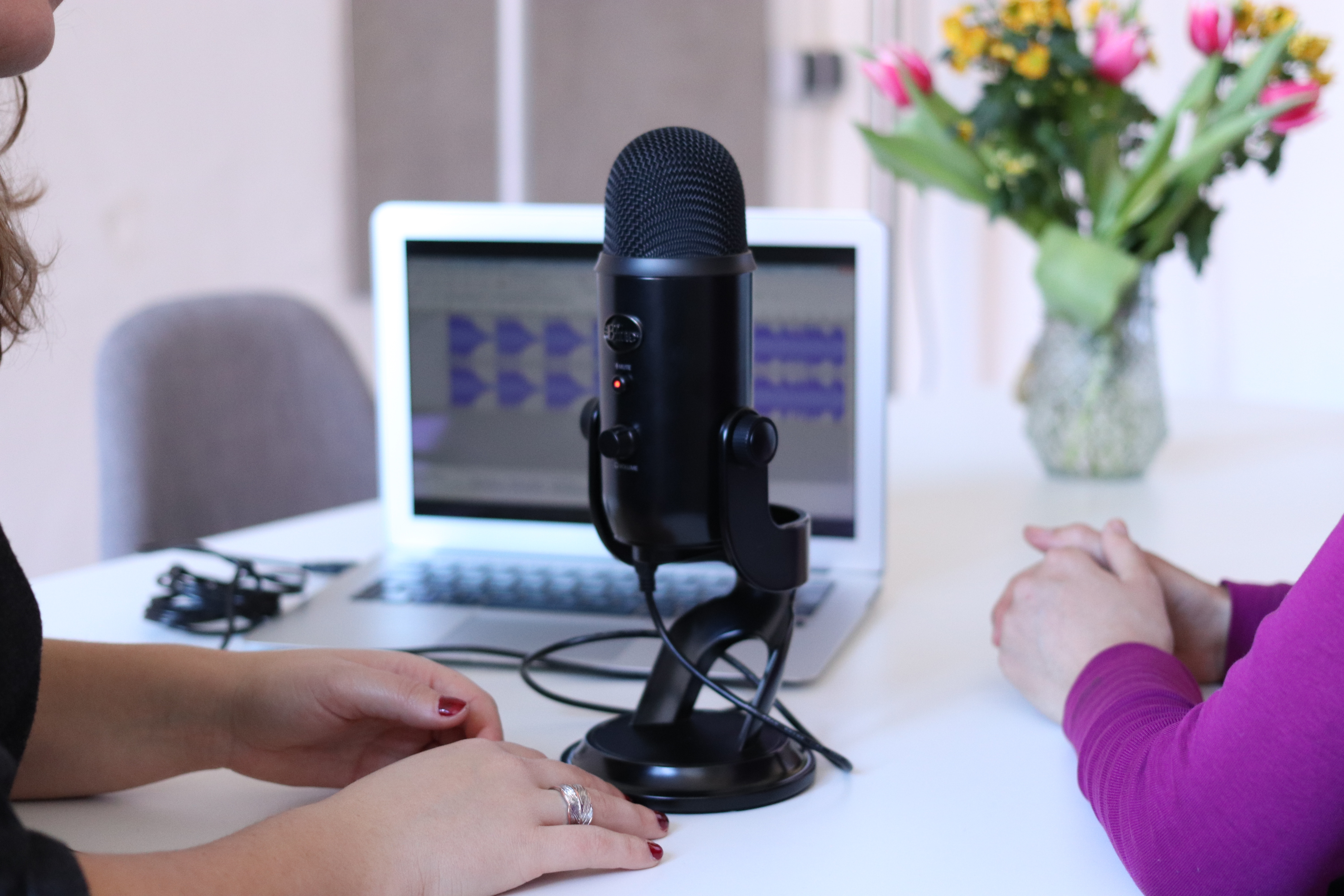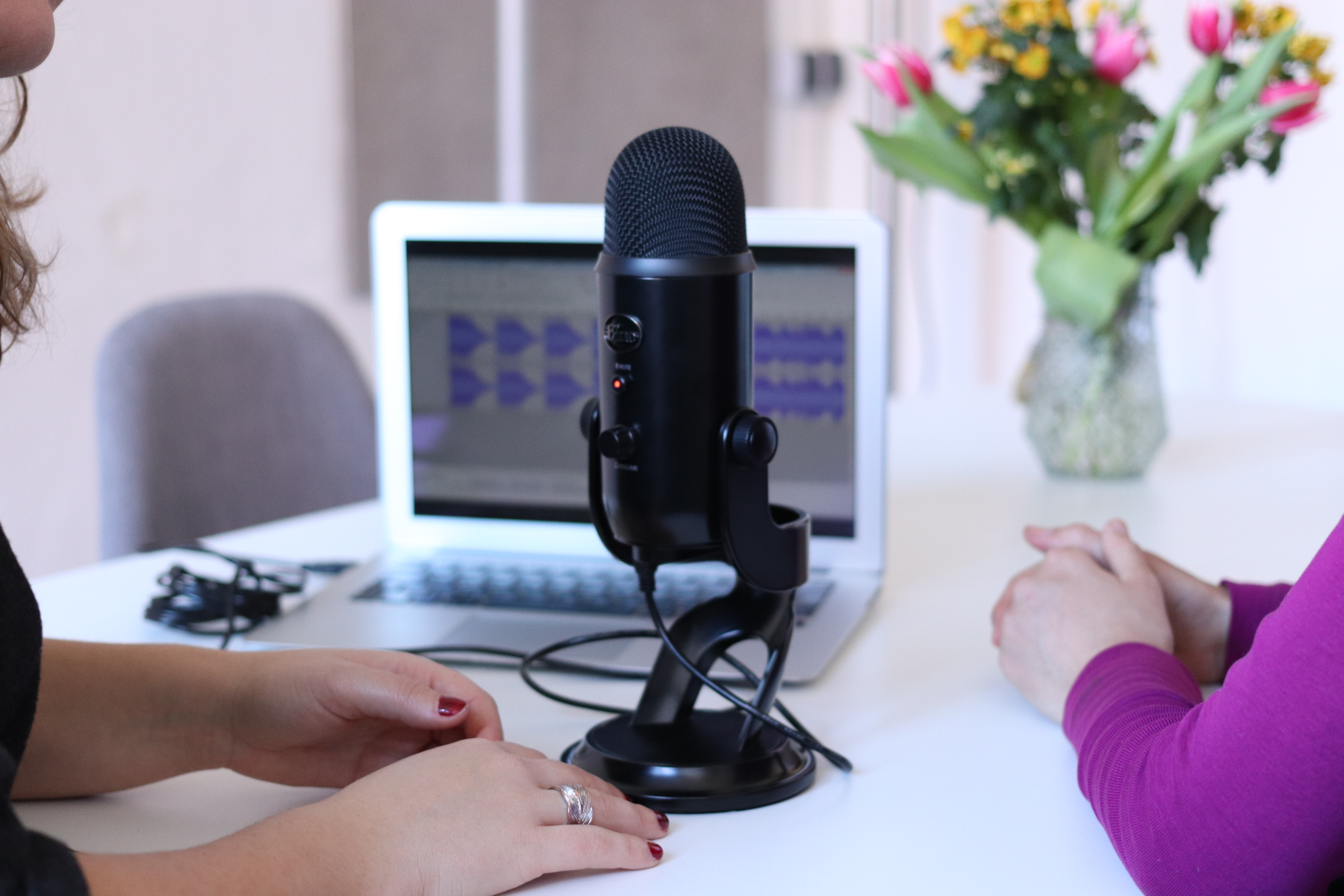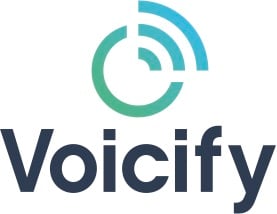





Imagine we're on a date. It’s our first date and you've never met me. You found me on a dating app that says I’m smart, compassionate, fun and, of course, love dogs. You’re intrigued, so we meet for a cocktail, which is at the same commitment level as listening to a flash briefing, versus inviting me to dinner, which would be more like an hour-long podcast. You aren't sure if you’re ready to give me that kind of time yet and want to test the water.
I, of course, know what you're doing by choosing to go to cocktails over dinner. I realize I have a limited amount of time to make a lasting impression and perhaps get asked out on a second date.
So, how do I approach the cocktail date?
I could show up looking great, smiling a lot, laughing at your jokes and providing you with enough content on Amy that you are left wanting more. This would be ideal. But instead, I decide to use the opportunity to promote myself and boost my confidence to get more dates.
Naturally, I still show up looking great, but I’m on a mission—I'm planning to cram in everything I think you should know about Amy, plus document and promote it. So, I ask to take a selfie of us to let my social media followers know I’m popular. Then, before we part ways, I ask for your feedback: “How do I compare to your other dates?”, “Will you be asking me on another date?”, “Can you direct message me when you get home and let me know if you have any questions about our date?” and, “Can you rate and review me on the dating app so others can find and date me too?” This would be a nightmare, and probably you would go as far as to block me.
As silly as this scenario sounds, it happens routinely in microcasting and flash briefings. Everyday, I hear at least 45 seconds to one minute on various flash briefings dedicated to self-promotion, along the lines of, “Please rate me, follow me, direct message me or connect with me, just anything so other people can find me!” The blatant self-promotion and begging must end if microcasting is to survive and thrive.
A one-to-three-minute daily flash briefing just doesn't provide a venue for daily promos, especially about the same thing day in and day out. I will even go further to say that I don’t believe you need to do any self-promotion on your flash briefing to get reviews or followers.
Since starting my flash briefing, “The Pitch with Amy Summers” last fall, I've produced more than 300 consecutive, daily flash briefings without ever asking for a review or a follow. In less than 10 months, I had more than 100, five-star reviews on Amazon for my Alexa flash briefing.
How?
By providing quality content that was consistent to the skill I developed and not using those precious 1-3 minutes to promote myself. Instead, I've promoted my skill offline with classic word-of-mouth, simply asking people to check it out and review it. I’m not a big name. I don’t have a huge following on social media. I haven’t spent lots of promotional dollars to advertise the skill. I've simply used my voice to get the word out, and it works.
I believe people are smarter than we give them credit. When you provide consistent, valuable content, you don’t need to beg for reviews. Going back to the dating example, let’s say you decided to go on a second date with me, because despite the fact that I asked for a review on the first date, you felt a little sympathetic for me. On date two, I end it the same way as date one, asking you for feedback and if you still like me. A little annoying, but you take me out on date three, which I still conclude with asking for reassurance and a review. Now it’s starting to get irritating so you decide to defer date four to someone who hasn't heard my pitch yet.
Whether you realize it or not, this is exactly what’s happening on many flash briefings and why most can’t seem to breakthrough on reviews. Those followers you engaged in the beginning are dropping off because they're tired of hearing you beg for reviews and ratings. This means you have to work even harder to find new listeners, who will also eventually abandon you when they tire of your five-star pleas. It may feel counterintuitive to not use your voice on your own flash briefing to broadcast a promotion of yourself, but there are other ways to use your voice offline that will elevate your flash briefing to the status you're seeking.
When it comes to leveraging promotion with microcasting and podcasting, try saving your self-promotion for the longer format “dinner date” or podcast where you have more time for content that leads up to your promotional pitch. Keep your shorter format, “cocktail date” or flash briefing, concise, creative and enticing to build an audience that will keep coming back for more.
Amy Summers will be discussing Project Leadership in the Voice Era at 2 p.m. on July 24, and moderating the Microcasting vs. Podcasting panel at 2 p.m. on July 25 at VOICE Summit 2019.




.png)

VOICE Copyright © 2018-2022 | All rights reserved: ModevNetwork LLC
